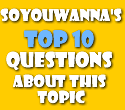3. FIND THE RIGHT PUBLISHER
In your travails to find a publisher, the first decision you need to make is whether or not you want to hire an agent. As glamorous as it sounds, it really isn't necessary for children's book writers to have agents. In fact, it's extraordinarily difficult to find a good agent who will work with you if you haven't already been published. Beware of agents who seem too eager to take you on, especially if they demand money up front. Since there's no special certification required to be an agent, just about anybody can chisel a shingle and hang it on the door. If you decide you need one, be sure to find him/her through a reputable source. Check the Guide to Literary Agents, published by Writer's Digest Books, and Literary Market Place, available in the research section of most libraries. You can also write to the Association of Author's Representatives (AAR) at:
Association of Author's Representatives
10 Astor Place, 3rd Floor
New York, NY 10003
For $7.00 and a self-addressed envelope with $0.55 in postage, you'll receive a list of agents who are AAR members, their code of ethics, and sample questions to ask agents when considering working with them.
Here's what an agent can help you with: he/she can read and critique your work, find appropriate publishers and submit your material, get manuscripts on the desks of the right editors, and negotiate your contract. For this, they usually receive a 15% commission on your earnings (advances, royalties, permission fees, etc.).
What an agent can't help you with: writing a better story. In fact, since they only get paid if you get published, there's no way they're going to sign you up unless they're pretty sure your book is marketable. It may be a better use of your time to thoroughly research publishers, find one that is looking for the type of story you've written and cross your fingers. Although a few of the largest publishing houses don't accept manuscripts unless they come from an agent, they are the exception. As long as you have a good story and you do your research, you've got the same chances with or without an agent.
If you opt to go solo, it's up to you to find a good publisher for your book. So, Sherlock, here's what you have to do:
- Buy (or spend a whole lot of time at the bookstore looking at) the book The Children's Writers and Illustrators Market. It lists every important children's publisher and also tells you what type of books they publish and what they're looking for.
- Contact the Children's Book Council for an annotated list of their members.
- Subscribe to a publication like Children's Book Insider (1-800-807-1916), which will keep you abreast of publishers' changing needs.
- Go back to the bookstore you camped out in when you were preparing to write, and find a few newer books that are like yours in style, audience, and genre and note the names and addresses of the companies that published them.
- Once you have a list of potential publishers, send each of them a self-addressed stamped envelope addressed to the Editorial Department with a brief note requesting their writer's guidelines. These guidelines will tell you what type of book they publish, whether they accept unsolicited manuscripts, what format the manuscript needs to be in and/or if they prefer query letters, any other rules and expectations, and where to send your materials. This will be your bible. Sprinkle with holy water and laminate.


